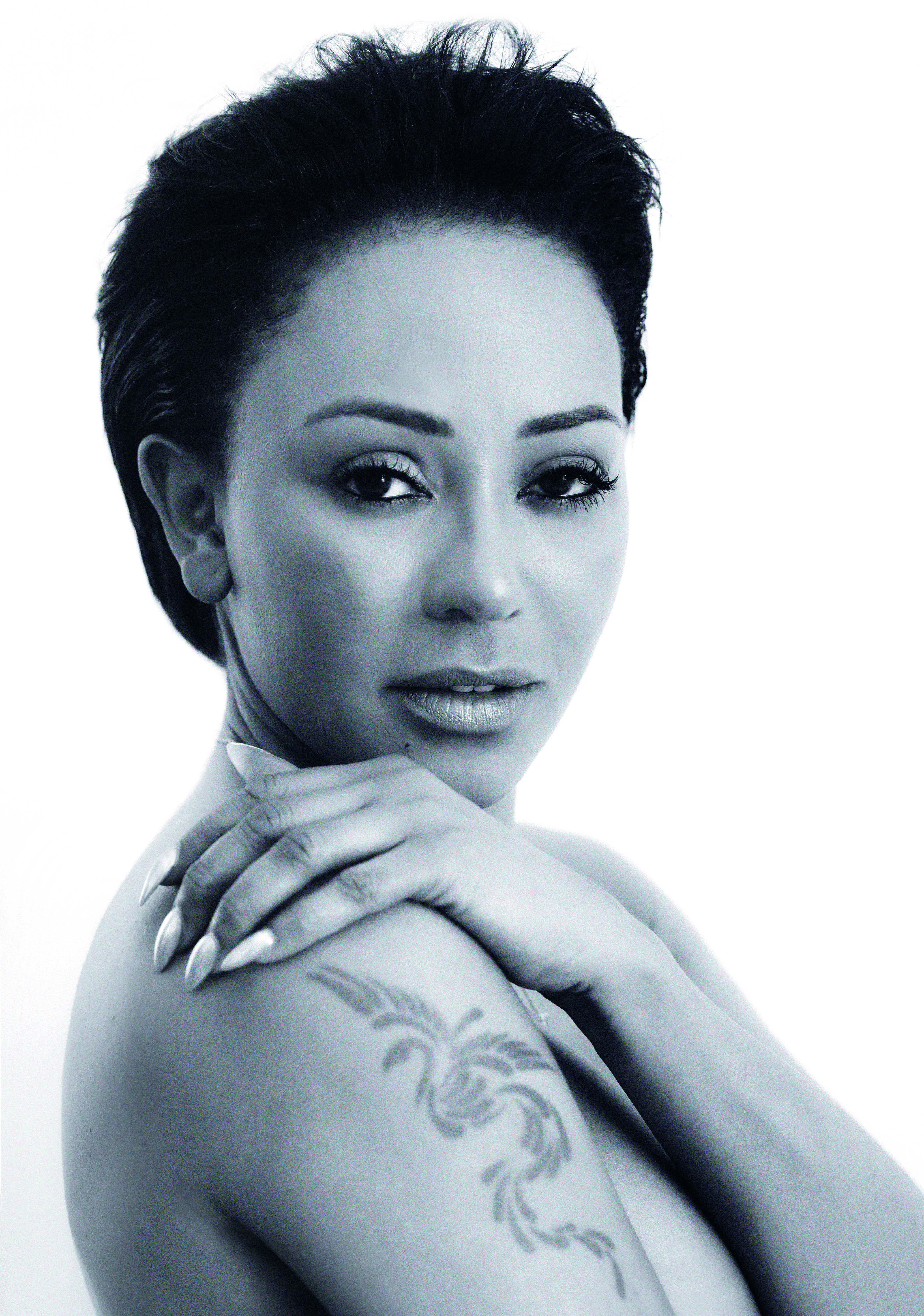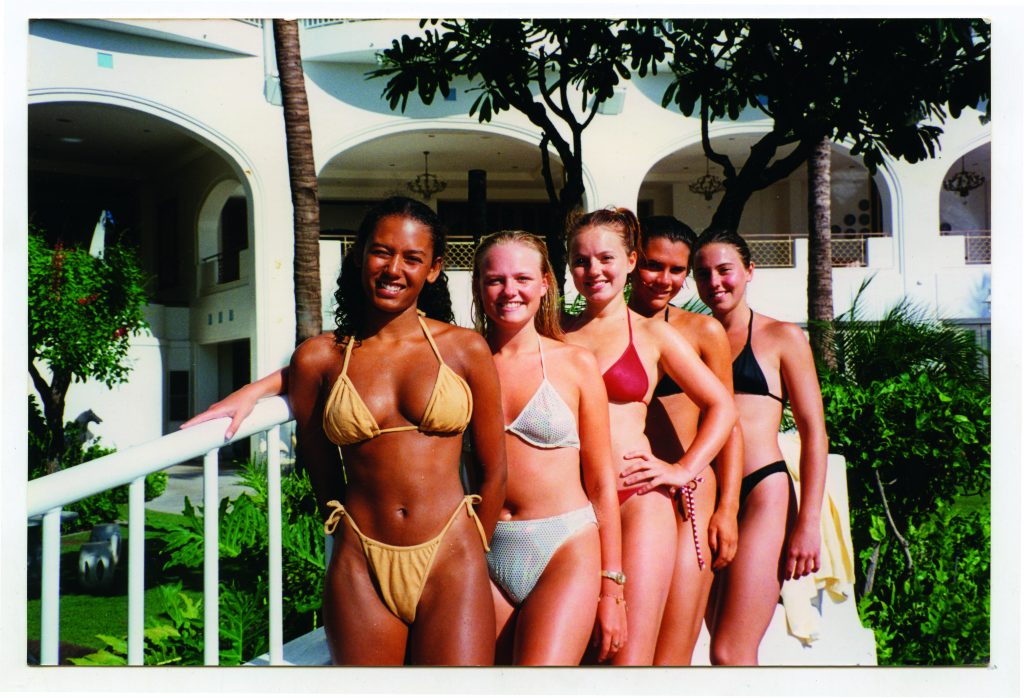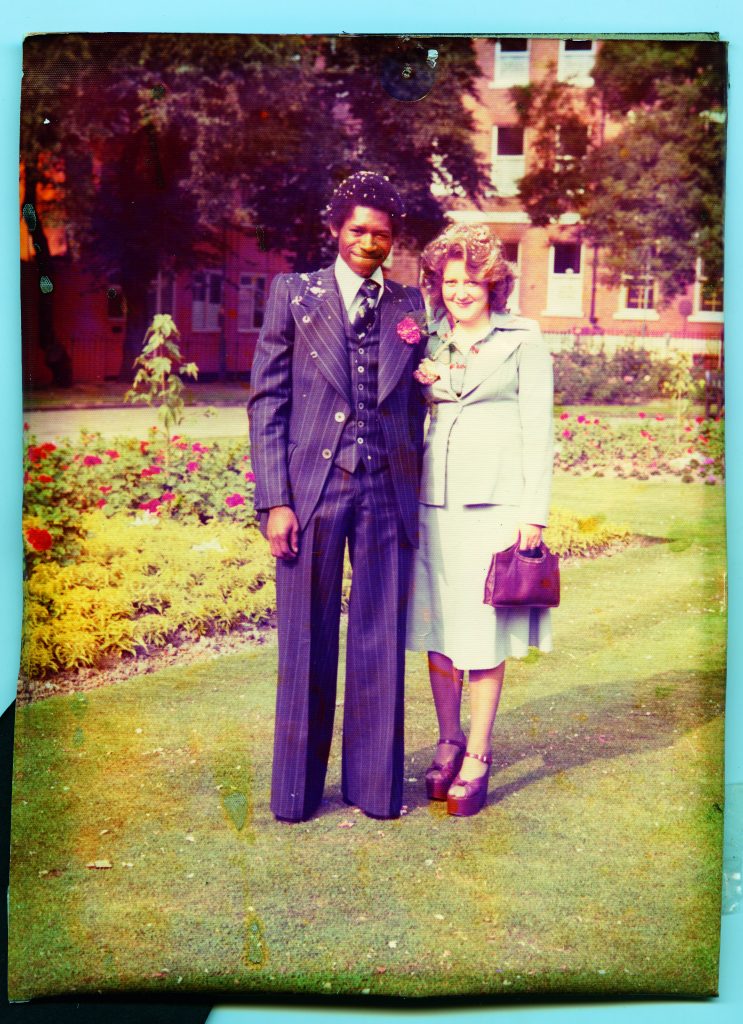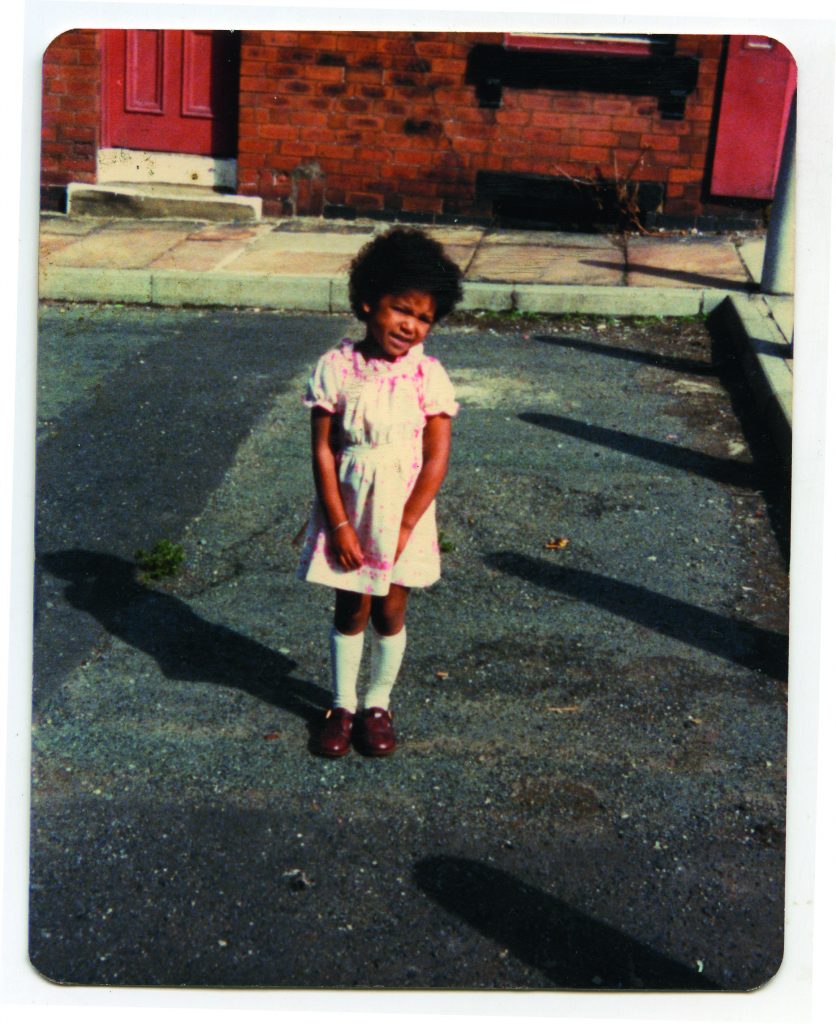
Image: Malachi Banales
One of my earliest memories is dancing with my cousins to the Spice Girls – I’m pretty sure we were all Mel B. An idol for little black and brown kids all over the country, Melanie Brown is the fly-kicking, back-flipping, say-it-as-it-is northerner. From Spice Girls, X Factor to Dancing With The Stars and Chicago, Melanie is undoubtedly a showbiz powerhouse. But under her hardworking decorum lies a woman who has been hurt – hurt by the tabloids, and hurt in her long and ugly abusive relationship.
We sat down in the library of a plush hotel in London to talk about her new book, Brutally Honest, in which she candidly opens up about her family life, mental health and her allegedly abusive relationship with ex-husband, Stephen Belafonte. In some ways reading it feels like you’ve stumbled across an open diary. Written with her close friend and journalist Louise Gannon, it’s a smooth read – she’s not trying to trip you up with grandiose prose, but instead simply tells her story matter of factly from her own point of view.
Much like a rolling Netflix series, you find yourself hungrily digesting chapter after chapter of Melanie’s life in one sitting. Some parts are hilarious and relatable; others are just painfully difficult to read. From her overdose in 2014, to her relationship with Eddie Murphy, to growing up as a mixed-race child in the north of England, Melanie doesn’t leave a single stone unturned.
There’s been a lot of “salacious bullshit stories”, about her in the tabloids, so in some ways Brutally Honest serves an opportunity for her to tell her truth. I ask her how she reconciles still talking to the media, especially considering all the cruel and misconstrued tales out there. “I don’t,” she answers, “I just bring a book out and say ‘fuck you all!’” She belly laughs.
It’s much more than your average vapid celeb stocking-filler – Brutally Honest serves as an anthology. “I’m raising three girls and I wanted this book to be educational,” she explains. Yes, this book is about her life, but it’s also about spotting the signs of gaslighting and breaking the silence around domestic abuse.
“For all the women that have been through it or are going through it…it’s okay to talk about it – talking about it is key”
Cleverly, on the very last page of the book are ‘15 Signs of Domestic Abuse’, a nifty idea of Louise’s to add in, Mel explains. “She showed me those 15 steps and I went, ‘oh this is the layout to my book then?’ She went, ‘no – these are the warning signs of being in an abusive relationship…’ and I went, ‘oh my god’. At every step, in exactly that order, it happened to me. It’s almost like these men have read the book,” she explains, “They choose you, you don’t choose them.”
In an almost-act of martyrdom, Melanie sacrifices her own life’s story (which is already being picked at by the tabloids) as an illustration of a controlling relationship. She says, “For all the women that have been through it or are going through it…it’s okay to talk about it – talking about it is key.”
Interestingly, Brutally Honest isn’t written chronologically. Instead, the narrative jumps around from 2014 then hopping back to the Spice Girls in the 1990s, and to her childhood. “I’ve got ADD,” she tells me, “So that’s how I talk…sporadically.” The narrative goes hand-in-hand with her Attention Deficit Disorder making up the tapestry of her life, and she thanks Louise for the innovative idea: “She [Louise] was adamant to keep it like that and so was I, otherwise it would be a boring read.”
Outside of Melanie’s relationship, the book centres on her working-class family life and growing up mixed-race in Leeds. It was “taboo” for her white mother and black father raising a family in the north she explains: “It’s something you didn’t see much of at all. Hence why I was the only mixed-race kid growing up in school, it felt like.” Clearly being mixed-race in Leeds was difficult, but: “I was very loud and proud of my colour and I’m proud of my hair – I still am,” Melanie tells me, “I actually thought for a long time I was called Melanie Brown because I was brown!” she laughs. “I was constantly trying to find my place but I ended up just making my own place.”
Melanie’s paternal family hails from Nevis – “one of the smallest islands in the Caribbean,” she grins. There’s a beautiful line in her book where she says, ”the bones and blood echo with the ghosts of your ancestors,” describing what it’s like coming from the legacy of the transatlantic slave trade. ”You have to give thanks and recognition that they survived that stuff,” Melanie says, “It’s nice to be part of a culture that is so morally correct even though it’s come from corruption and just slavery. Which is really quite…horrific but they celebrate life.”
Her face lights up when talking about “black grandma” (her father’s mum): “She’s very much the matriarch,” she beams, “She’s very opinionated but she’s also a giver and a listener at the same time.” We swap stories about our grandmas in the Caribbean, and she tells me about her 107-year-old great grandma – we conclude there must be something in the Caribbean air.
“I remember giving my black grandma a Spice Girls CD and playing it really loud and she was like, ‘what is all this noise?'”
“I remember when I did go and see her once,” she says about black grandma, “And I’d just got into the Spice Girls and our number one single had just been released, and I remember going over there giving her a CD and playing it really loud and she was like, ‘what is all this noise?’ She took one look at my piercings and tried to throw some holy water on me,” laughs Melanie. “She was like ‘you cannot have piercings!’ She was not having it, she was trying to take it out, telling me if I pierced myself I’m going to let in the bad spirits!“ – something anyone with a superstitious Caribbean grandma will understand. “I think I had a white boyfriend at the time,” she says, “I don’t even think she acknowledged him, she was just like ‘mmm really?!’”
In the end, Melanie credits her father’s death last year in helping her end her marriage for good. “Him being so ill brought my whole entire family back together,” she says. Between her passport being hidden and fulfilling Broadway contracts, she only just made it to his side for the last time. “My dad had already slipped into a coma–,” but, she explains, his state changed when she arrived in his room: “When I walked in he just bolted up like he’d seen a ghost and whispered, ‘I love you.’ That whole entire time I was just praying that he would go peacefully because he was in so much pain. Then as soon as he died I was like, right, that’s it – I have to go and divorce that monster.”
Clearly, she’s a woman still riddled with fear and the remanence of self-doubt that comes with being in an abusive relationship for so long – especially now that she’s telling her story to the world. “A story like this…I am very honest and people are going to judge me, they’re not gonna understand it.” But that couldn’t be further from the truth, especially considering that she’s now a patron for Women’s Aid, the domestic abuse charity – “which is so validating for me.” It’s now even a conversation that’s getting global recognition: “I’m so happy that the MeToo movement happened initially, because it actually created a ripple across the whole entire world that this kind of behaviour isn’t acceptable.”
If you’re hoping for some fairytale ending divorce, life isn’t that simple: “I have a seven-year-old with him, so I still have to see him in court – which is terrifying for me to have to sit four seats down from him. I panic, it’s awful.” Even with a restraining order, things don’t seem to be so plain-sailing. “I went to take my daughter to school the other day and my tires were slashed so, it’s ongoing.”
Melanie is much more than her story. She became a Reiki master aged 19, the technique of moving energy around someone’s body, and praises Reiki and meditation as the practices that got her through the whole ordeal. At her core, much like black grandma, Melanie is the matriarch of her family, caring and a hard worker; ultimately, she’s still a working-class woman from Leeds.
The book affected me more than I had expected and, surprisingly, I ugly-cried a lot. If you want to educate yourself on the signs of an abusive relationship or simply learn more about your favourite Spice Girl – a woman who has had a fascinating life – Brutally Honest will touch you more than you expect.












